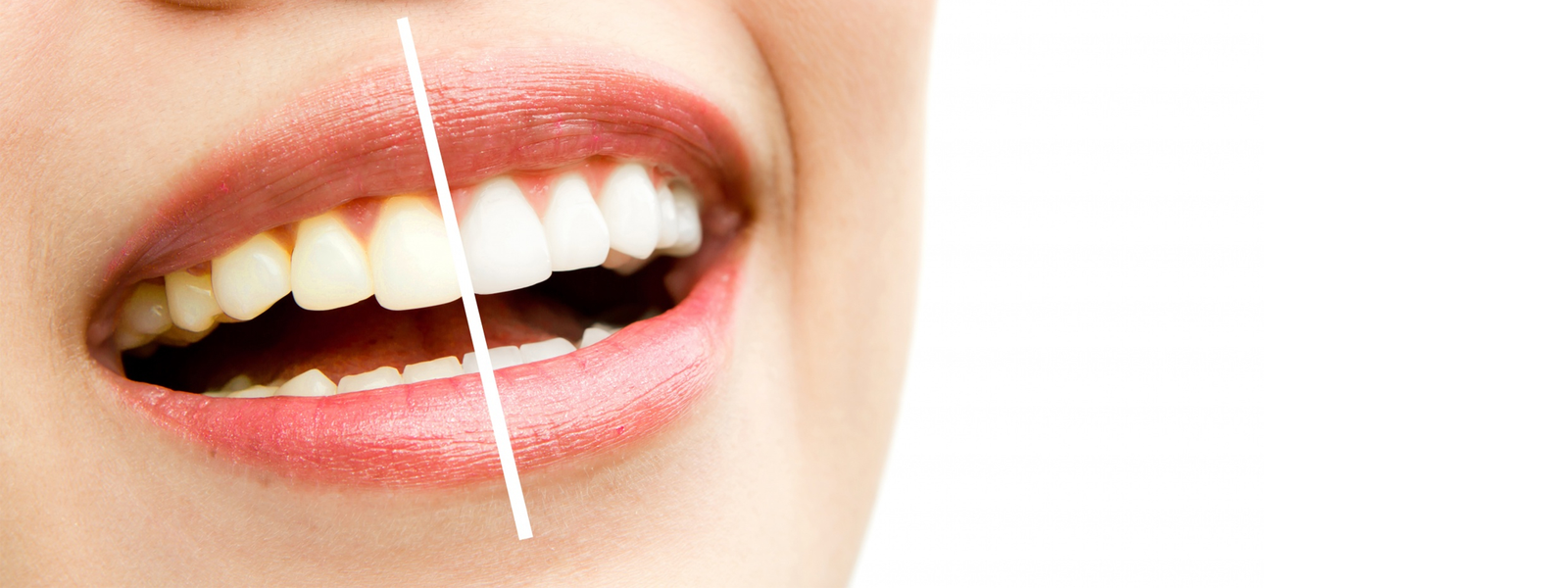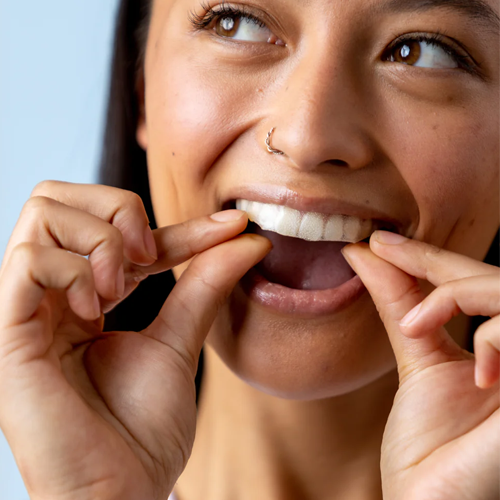
Teeth Whitening
Teeth whitening is a cosmetic dental procedure designed to lighten the color of your teeth and remove stains or discoloration. It's a popular treatment for individuals who want to achieve a brighter and more youthful smile. Teeth whitening can be performed in various ways, both professionally by a dentist and using over-the-counter (OTC) products. Here's an overview of teeth whitening:

1. Causes of Tooth Discoloration: Teeth can become discolored due to various factors:
Extrinsic Stains: These are surface stains caused by consuming foods and beverages like coffee, tea, red wine, and dark-colored foods.
Intrinsic Stains: These are stains that occur within the tooth enamel due to factors such as aging, certain medications, trauma, or excessive fluoride exposure during tooth development.
2. Teeth Whitening Options: There are two main categories of teeth whitening methods
Professional Teeth Whitening: This is performed by a dentist or dental professional and typically provides faster and more dramatic results.
Over-the-Counter (OTC) Whitening Products: These are available without a prescription and include whitening toothpaste, strips, gels, and trays. OTC products generally produce more gradual results.
3. Professional Teeth Whitening: Professional teeth whitening can be done in the dental office or with take-home kits provided by the dentist. Here's an overview of both methods:
In-Office Whitening: This is often called chairside or power whitening. The dentist applies a strong bleaching agent to the teeth and uses a special light or laser to enhance the whitening process. This method usually provides quicker and more noticeable results in a single visit.
Take-Home Whitening Kits: The dentist provides custom-fitted trays and a professional-strength bleaching gel. Patients wear the trays for a specified period each day, usually over a couple of weeks. This method offers convenience and gradual, controlled results.
4. OTC Whitening Products: These products are available without a prescription and can help whiten teeth to a certain extent. However, they typically contain lower concentrations of bleaching agents than professional products, so the results may be less dramatic and take longer to achieve.

